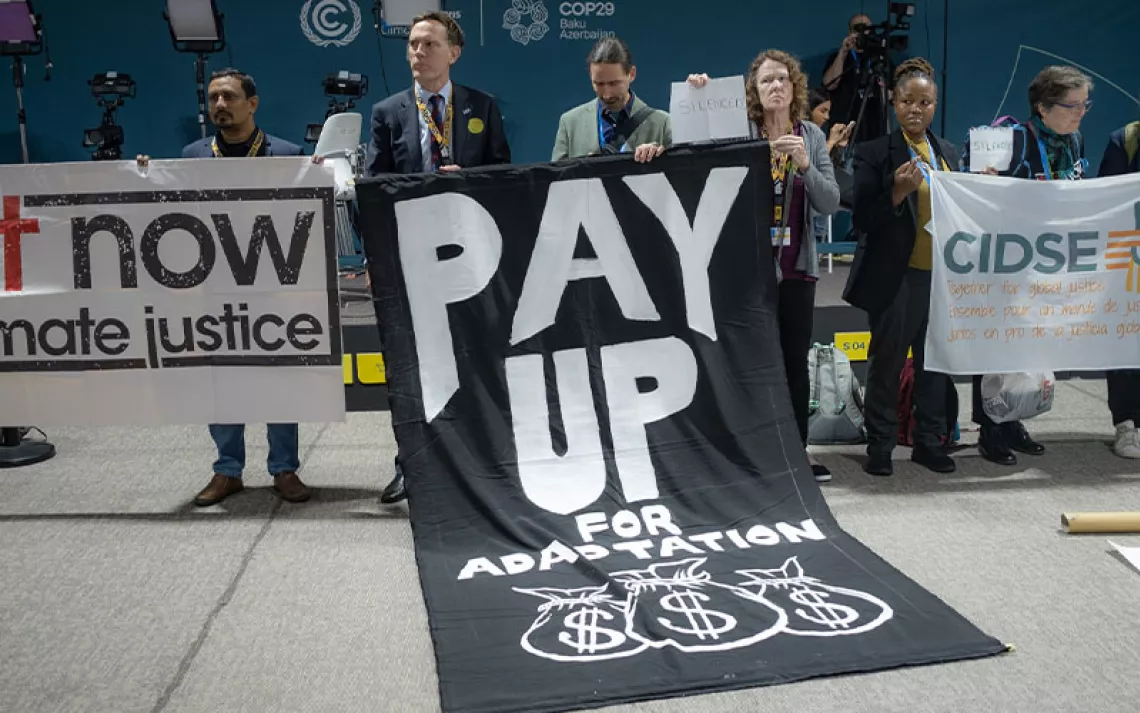Salvation at Last for the Arctic Refuge?
The Build Back Better spending bill could finally close the door on Arctic drilling

Pockets of melted snow and rain form pools in the 1002 area of Alaska's Arctic National Wildlife Refuge.
Thanks to conservative Democratic senators Kyrsten Sinema (AZ) and Joe Manchin (WV), President Joe Biden’s $3.2 trillion Build Back Better spending package has shrunk to $1.75 trillion. It no longer contains the hallmark Clean Electricity Performance Program, but it does still invest $555 billion toward climate action. And one provision that made it past the chopping block would be an early holiday gift to the environmental community.
That provision would ban new oil and gas leasing in the 19-million-acre Arctic National Wildife Refuge, the nation’s largest wildlife refuge, and Alaska’s Outer Continental Shelf as well. The prohibition wasn’t highlighted in President Biden’s new reconciliation outline released October 28 but is included in the 1,684-page bill debated in the House last week. Should the new reconciliation package pass, it would finally bring one of the greatest and longest-running environmental battles in US history to an end.
“Congress and the Biden administration will not get a better opportunity to work together to restore protections for the Arctic Refuge,” Kristen Miller, acting executive director of the Alaska Wilderness League, said in a statement. “Repealing the oil and gas program is the most important action Congress can take right now to protect threatened Arctic wildlife and ensure the rights, culture, and sacred lands of Gwich’in and Iñupiat peoples remain intact, and it is a vital piece of addressing the climate crisis.”
The House Natural Resources Committee advanced its $25.6 billion portion of the $3.5 trillion reconciliation bill in early September. The committee voted to include this ban of new oil and gas leases in the refuge, along with other climate investments like creating a national Civilian Climate Corps program.
Tribes and environmental groups applauded the inclusion of banning new Arctic refuge drilling. Indigenous activist Bernadette Demientieff, executive director of the Gwich’in Steering Committee, thanked the committee for listening to Indigenous people, raising the importance of restoring protections for these sacred lands.
“For four years the Gwich’in people had our concerns ignored and rights trampled by an administration concerned only with bowing down to oil and gas interests,” Demientieff said. She referred to the Trump administration’s decision to open leasing on the refuge, promising billions of dollars in federal revenue. That jackpot never came about, however, due to a lack of interest and bidders.
“We have trusted in the strength and knowledge of our ancestors and elders to overcome these adversities,” Demientieff said. “Now we call on Congress to continue to push forward and finish the job of restoring protections to the Arctic National Wildlife Refuge coastal plain.”
Dan Ritzman, director of lands, water, and wildlife for the Sierra Club's Our Wild America campaign, says the “iconic fight” to end new leases has become “bigger than the oil that is potentially underneath it.” Ritzman said that he’s fairly confident the provision will remain in the final package, given the lack of industry interest in drilling in the remote area, but “we don’t want to count our chickens before they hatch.”
If the provision does survive, it couldn’t be reversed by a new president. It would take another act of Congress.
“I feel really confident that if we are able to move reconciliation this time,” says Ritzman, “it would be a long time, if ever, that we saw another threat to the Arctic Refuge.”
 The Magazine of The Sierra Club
The Magazine of The Sierra Club



